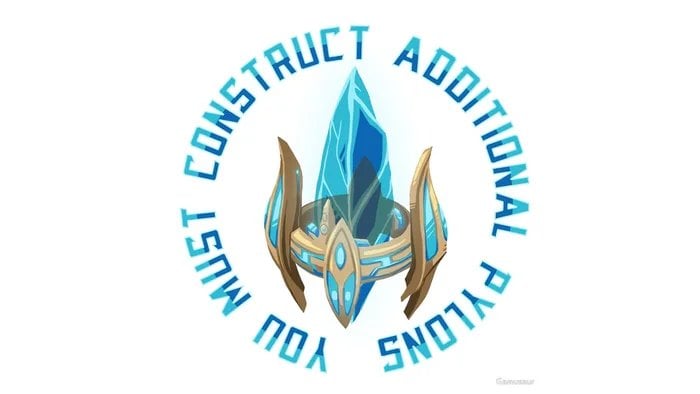The spoken language is the actual language. If three things are written different but sound the shame, then that’s a failure of the writing system, not the individual.
I would in principle agree with you, however not about English, mainly because it is now a language of international discourse of any kind, and it thus no longer belongs to the local speakers.
It now has a role Latin had until just a few centuries ago, and extrapolating a bit into the future from that example, will remain quite stable while your dialect, American, Australian, Indian, Jamaican, will change until it becomes another language entirely, no longer mutually intelligible with the other dialects.
If you want to participate in the international dialog however, you will have to learn International, which is now English including the differentiation of the theiy’res, even if your native language is English. Your grand-grandchildren may have to learn English like an Italian in 1800 had to learn Latin if he wanted to join the international discourse.
It’s super interesting to watch this process unfold right now!
Wagwan dickhead,
We already have different spellings in different countries. If we truly cared about the international part we would have a customized writing system just for that, which would probably remove the three theirs. We would also have a standard international spelling. Instead what happens is the American version gets used since they are the biggest and everyone has to deal with their version. The people who invented the fucking language get left behind. So there isn’t really a reason not to fix it since English is diverging anyway.
If Americans fix it then it will just become the norm anyway, except in England because fuck America that’s why. If it becomes the norm in England then nobody will care because it’s England, and we aren’t an empire anymore. Not that we would because there are far too many posh twats in England who get off on correcting people’s grammar. Oi listen, maybe the road men could get this done, you feel me? As for what happens if Canada adopts it, ay, I wouldn’t worry aboot that.
Apologies for the road man impression. Best I could do y’all.
All of ye might want to take note that not all UK people speak the same language. To say otherwise takes the pish. Anyway I best bob up the apple and pears and go beddy byes. Nice talking to you wee lad.
p.s. I tried to fit as many localisms into this as possible. How did I do?
I don’t get it. There all the same word.
checked to see if I actually launced reddit
Your welcome has expired
These are a dead giveaway that someone speaks English as a second language. You can tell right away because they never mix them up. Native speakers use whatever they’re hearts desire.
I’ve seen non native speakers use better grammar than native speakers
Thatsthejoke
Fuckin whoosh on my ass
True, my pet-peeve as an ESL speaker is that native speakers write
it'sinstead ofitsall the time. They could make it right and save one character, but nope.As a non native speaker I almost always type “it’s” out before my brain autocorrect reminds me “that means ‘it is’” and then I have to correct it to “its” - it’s kinda counter-intuitive…
I get if you’re not paying much attention to it, but the apostrophe indicates a contraction, idk how that’s counter-intuitive.
The apostrophe is also used for possession. For example, the DoJ’s lawsuit against Apple was filed Thursday morning or Adrian’s baseball went missing. It’s only backwards for its.
The confusing part of “it’s” vs “its” is that “its” is a pronoun, and therefore its possessive doesn’t use the apostrophe, where as you use one with possessive nouns. So usually when you are writing you’re thinking about the possessive relationship, not so much about whether you are using a pronoun to describe your subject.
“My Lemmy account’s username”
“Its username”
It’s funny because my phone defaults to adding the apostrophe when I just type “its” but if I follow it with a noun (or adjective) it automatically goes back and removes it.
My pet peeve is “could of”
Ugh. That’s just immediately makes me cringe when I hear or read it.
I’m pretty particular about my there, their, and they’re but what you described happens to me all the time. My phone defaults to using “it’s” and, unlike many other scenarios, I don’t feel like correcting that one is worth the time it takes to do so.
A lot of people would get “its” wrong anyway, but my autocorrect on my phone changes it basically every single time. Including just now. I sometimes don’t catch it, other times I don’t feel like fighting a touch screen to go back and fix it. Having said all that, it’s a pet peeve of mine too lol
And they also regularly use whatever vowel suits their mood. It’s like they have a vowels bucket where they’re all mixed up.
As a native speaker who has to write grammatically correct, professional communications all day, it drives me crazy other native speakers can’t be bothered.
Hah, funny. As a non-native speaker I never mix them up as I am very conscious of it when I’m writing. I’m also often translating from French in my mind to English on “paper” which helps differentiate all of them since they don’t sound the same in French.
If you are a proper stereotypical French speaker though, I bet you confuse “actually” with “currently” all the time ;)
Currently I don’t
Edit: Is that a thing though? I really don’t think I do.
Edit 2: Took a second to think about it and yeah I guess because actuellement translates to currently it could be mixed up but I don’t think I have or have I ever heard anyone mix those two up. I also speak English since I’m like 5 years old though so maybe I would have at some point but I can’t say I do now.
Another French here. That’s definitely a thing!
Being a German, my fellow countrymen have the same problem as the French, I hear the mixup a lot in my work environment :) We use “aktuell” for currently. But yeah, I have not spoken English from quite such an early age as you, but that particular mistake I also don’t make. I feel it’s the kind of mistake that people make for whom learning the language was a “necessary evil” / chore in order to succeed professionally or accomplish some other goal. People who actually enjoy learning a language will not keep repeating the same mistake if they can regularly witness native speakers using a word differently.
I feel it’s the kind of mistake that people make for whom learning the language was a “necessary evil” / chore in order to succeed professionally
Ahhh yeah that would make sense, I do love languages and have always found them fun. I also grew up in a bilingual area. My little village is French but most surrounding towns/cities are English speaking and was immersed in it from a very young age. I actually learned English mostly to argue with the kid next door who only spoke English (and from a whole lot of American English TV.)
I see what you did they’re at the end ;)
Well, native speakers are the ones that have decide what’s the future of the language. Maybe you guys think that each “form” holds irrelevant or redundant information and in a few decades you fuse them all into one.
Written and spoken language is usually not 100% the same language. And this is an error that comes up when you screw up converting homophone words of your spoken mother tongue into written language.
Wait what happened to my welcome
Decapitated. Whole big thing. We had a funeral for a bird.
It is somewheir else now
Usefull
Truly a shit post, sir
You can just call me Matt though.
Brilliant. Sadly, someone will see this and trust it. Butt I’m still hear fore it.
You monster!
Tank yuo
What about the Teyrn wordy from dragon age
There, their, they’re … don’t be so upset Grammar Nazi
An ellipsis is only three dots.
The word “don’t” should be capitalised.
Also, full stop after the word “nazi”.
Eye sea watt yew did their.
You English very yes!














